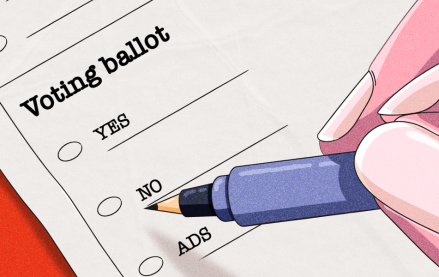German publishers are pooling data to compete with Google and Facebook

Google and Facebook are now commanding 85 percent of incremental digital ad spending, with publishers left to fight it out over the leftovers. That’s why German publishers have put aside traditional rivalry and gone all-in on a major data-pooling initiative.
Axel Springer, Gruner + Jahr, RTL owner Bertelsmann Group, and Der Speigel owner are among eight of the 10 biggest publishing groups in Germany to be pooling masses of reader data, from just under 1,000 websites including tabloid Bild, and other major titles.
The raw data goes into a single platform called Emetriq, a subsidiary owned by Deutsche Telekom, which sifts through and cleans it up, to create highly targeted, quality audience segments that publishers can use to boost their advertising packages.
“Our biggest competitors are no longer conservative publishers,” said Carsten Schwecke, CDO of Axel Springer’s sales house Media Impact. “We together must combine our forces against Google, Amazon, Apple and Facebook.”
Publishers pay a flat fee to use the data segments, which can be anything from €4,000 ($5,000) to €15,000 ($17,000). The price depends on how many page impressions they have and how many ad impressions they use the data on.
“Nobody is suffering more than publishers and sales houses in Germany, because they don’t have enough data, and their data silos will never be able to aggregate enough to come even close to Google and Facebook,” said Daniel Neuhaus, CEO of Emetriq. “Even now we’re pooling it; we’re still nowhere near but we’re getting closer in quality and quantity of data.”
German publishers are no strangers to collaborations. AdAudience is a joint venture between seven of the biggest German publishing groups including Axel Springer, set up in 2010 to sell their advertising on a programmatic guaranteed basis (not remnant inventory).
It’s via this joint venture that Emetriq can access all the publishers’ data, all of which is anonymous. Publishers run a bunch of different data types: social demographic data, online log-in data intent, behavioral and purchasing data, and semantic and contextual website data, to create quality reader profiles and segments that will be attractive to advertisers.
“Cookie-deletion rate is an issue for everyone,” added Neuhaus. “That’s why it’s important to stress that when we say we have 45 million female users, they’re all active users.”
All segments created by Emetriq are sense checked against online consumer panels from research group GfK. Deutsche Telekom also puts some of its own data in. This gives it an 87 percent accuracy rate, Neuhaus claims.
The data, once segmented, is fed back to the publishers, who can then choose to run the segments through their own DMPs.
“The real benefit is to create better quality segments that clients really need, in parallel with high reach,” said Stefan Kroetz, CEO of publishing joint venture AdAudience. It’s not so complicated to create good quality on small reach, or high reach with bad quality data, but putting them together — that’s the challenge.”
The benefit for publishers is that they receive advanced, anonymous data segments from a far bigger pool than their own portfolio of brands, which they can use to boost CPMs. Given the project is still in the early stages, there aren’t many figures AdAudience is willing to part with to show CPM uplift, but Kroetz said early signs show them to be “significant.”
So far Deutsche Telekom has been the only advertiser to be allowed access, using the data for its own campaigns, and adding in data from its open DMP.
“The concept of Emetriq is to help people be innovative wherever data is needed, to make it a reality,” said Neuhaus. “The fact Google, Facebook, Amazon and Apple all aggregate data and keep it to themselves and don’t share it will eventually kill innovation.”
More in Media

Publishers revamp their newsletter offerings to engage audiences amid threat of AI and declining referral traffic
Publishers like Axios, Eater, the Guardian, theSkimm and Snopes are either growing or revamping their newsletter offerings to engage audiences as a wave of generative AI advancements increases the need for original content and referral traffic declines push publishers to find alternative ways to reach readers.

The Guardian US is starting its pursuit of political ad dollars
The Guardian US is entering the race for political ad dollars.

How much is Possible’s future in Michael Kassan’s hands?
Some people in the know at Possible said they see the conference taking a bite out of Cannes’ attendance, most acutely by U.S.-based marketers who could save money by staying on this side of the Atlantic.





